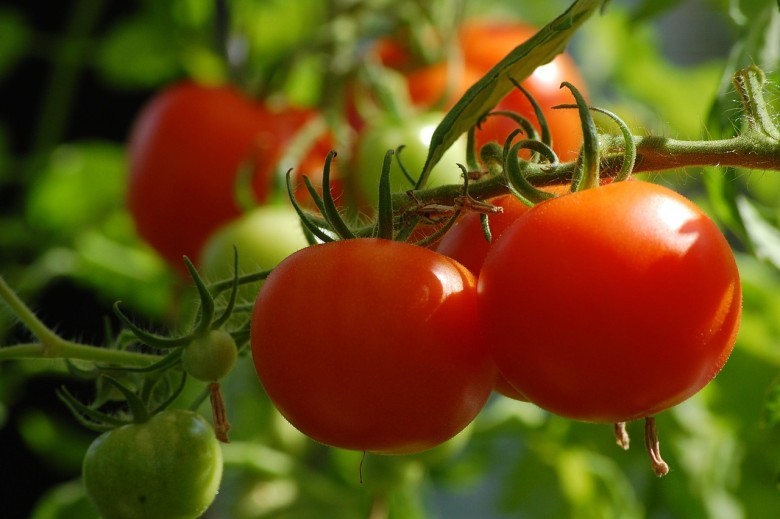views
In our fast-paced, instant-gratification world, we often overlook the simplest, most natural foods that have sustained human health for centuries. While modern diets prioritize convenience-packaged snacks, fast foods, and synthetic supplements... we've forgotten the profound benefits of whole, unprocessed foods.
The truth? No single food is a miracle cure. Health comes from diversity, a symphony of nutrients working together (Harvard T.H. Chan School of Public Health, 2021). Yet, many of the potent foods are dismissed as "ordinary." Let's reclaim them.

20 Underrated Nutritional Powerhouses for Daily Health
These foods are not exotic superfoods flown in from remote jungles. They're humble, accessible, and packed with unique benefits most people ignore:
- Bananas - Rich in potassium (helps regulate blood pressure) and vitamin B6 (supports brain function) (NIH, 2022).
- Sweeet Potatoes- High in beta-carotene (converts to Vitamin A, crucial for vision and immunity) (Mayo Clinic, 2021).
- Spinach - Excellent source of iron (prevents anemia) and lutein (protects eye health) (American Health Association, 2020).
- Garlic - Contains allicin, a compound with antimicrobial and heart-protective effects (Journal of Nutrition, 2016).
- Beets - Nitrates improve blood flow and athletic performance (British Journal of Sports Medicine, 2017).

6. Lentils - High in plant-based protein and fiber (supports digestion and heart health) (American Journal of Clinic Nutrition, 2019).
7. Blueberries - Antioxidants (anthocyanins) reduce oxidative stress and inflammation (USDA, 2020).
8. Carrots - Beta-carotene supports vision and immune function (NIH, 2023).
9. Oats - Soluable fiber (bet-glucan) lowers LDL cholesterol (FDA, 2021).
10. Walnuts - Omega 3-fatty acids improve brain function (Journal of Alzheimer's Disease, 2020).
11. Ginger - Anti-inflammatory and aids digestion (Journal of Medicinal Food, 2018).

12. Tomatoes - Lycopene reduces risk of heart disease and cancer (Critical Reviews in Food Science and Nutrition, 2020).
13. Apples - Fiber (pectin) promotes gut health and satiety (Nutrion Journal, 2015).
14. Cabbage - Sulforaphane has anti cancer properties (National Cancer Institute, 2019).
15. Pumpkin Seeds - High in magnesium (supports muscle and nerve function) (NIH, 2022).
16. Turmeric - Curcumin reduces inflammation (Journal of Clinical Medicine, 2020).

17. Avocados - Monounsaturated fats support heart health (American Heart Association, 2021).
18. Eggs - Complete protein and choline (essential for brain development) (Harvard Health, 2020).
19. Yogurt (Plain) - Probiotics improve gut microbiome (International Journal of Food Sciences and Nutrition, 2019).
20. Dark Leafy Greens (Kale, Collards, Swiss Chard) - High in Vitamins K, A, and calcium (USDA, 2021).

The Modern Dilemma: Instant Food vs. Long-Term Health
Pros of Instant Food:
- Quick, convenient, fits busy lifestyle (FAO, 2020).
- Engineered for taste (hyper-palatable) (WHO, 2021).
- Often fortified with synthetic vitamins (FDA, 2022).
Cons of Instant Foods:
- Nutrient Loss: Processing strips away fiber and phytonutrients (British Medical Journal, 2021).
- Additives & Preservatives: Linked to inflammation and metabolic disorders (Nature Reviews Gastroenterology & Hepatology, 2020).
- Blood Sugar Spikes: Rfined carbs increase diabetes rsik (American Diabetes Association, 2022).
- Long-Term Deficiences - Lack of diversity weakens immunity (Frontiers in Immunology, 2021).
Final Thought: Relearning Nutrional Wisdom
The best foods aren't in a pill or a powder. They're the one our ancestors ate-simple, seasonal, and unprocessed. Instead of chasing the next "miracle superfood," maybe the real secret is going back to basics.
What's one "ordinary' food you'll give more credit to today?
------------------------
copyright statement
© 2025 Mariza Lendez. All rights reserved. www.chikicha.com
This article, “The Forgotten Superfoods: 20 Nutritional Powerhouses We Take for Granted" is an original work by Mariza, a Doctor in Business Administration (Candidate). It is protected by copyright and may not be copied, distributed, or reused without permission, except for brief quotes with proper credit.
Disclaimer:
This guide is for informational purposes only. It does not promote or sell any investment. The insights are based on independent research, enhanced by AI tools to gather verified and peer-reviewed data, trusted sources, government publications and agencies, and other reliable data resources like WHO.
Approved citation (if licensed):
Lendez, M. (2025) 'The Forgotten Superfoods: 20 Nutritional Powerhouses We Take for Granted" [URL] https://chikicha.com/women-health/the-forgotten-superfoods--20-nutritional-powerhouses-we-take-for-granted
The content reflects the author's academic lens and ongoing dissertation titled “Designing a Purpose‑Driven Retirement Model Based on the IKIGAI Philosophy.
References:
- Harvard T.H. Chan School of Public Health. (2021). The Nutrition Source: Healthy Eating Plate.
- National Institute of Health (NIH). (2022). Potassium Fact Sheet for Health Professionals.
- Mayo Clinic. (2021). Sweet Potatoes: Health Benefits.
- Journal of Nutrition. (2016). Antimicrobial Effects of Allicin in Garlic.
- British Journal of Sports Medicine. (2017). Dietary Nitrates and Athletic Peformance.
- American Heart Association. (2020). The Benefits of Leafy Greens.
- USDA .(2021). Dietary Guidlelines for Americans.

Thanks to #hot-sun and #girlliuxia, #t_watanabe, #ivabalk, #kamila211, #axelmillen and #asundermeier @pixabay for these beautifulphotos.




















Comments
0 comment